After nearly 40 years of carrying out the renovation process, more than 30 years of implementing the Platform for national construction in the transitional period to socialism (1991), the theory of the renovation policy, socialism and the path to socialism in our country has been increasingly developed and perfected. The renovation, construction and development of the country along the socialist path initiated by the Communist Party of Vietnam since 1986 has achieved great victories and achievements of historical significance; turning our country from a poor country in the world into a developing country with average income. Our country has been built more and more properly, the lives of our people have been improved more fundamentally and comprehensively, and our country's position in the international arena has been increasingly enhanced. These great and proud achievements are due to many reasons, but one of the important reasons is that our Party has consistently and creatively applied the theory of Marxism-Leninism and Ho Chi Minh Thought to the practice of building socialism in Vietnam; regularly summarized the practice, developed the theory of socialism and the path to socialism in Vietnam to suit the development practice of each period, led our nation to firmly overcome all difficulties and challenges, constantly promoted the comprehensive and synchronous renovation process, strongly aroused the spirit of patriotism and the aspiration to develop a strong, prosperous and happy country.
From the reality of national construction and development and the process of theoretical awareness of our Party over nearly 40 years of innovation, construction and development of the country along the socialist path, we can summarize the great theoretical achievements of our Party with the following main contents:
Firstly, to identify, supplement and shape more and more clearly the content of the characteristics of Vietnamese socialism on the basis of a correct understanding of the transitional period to socialism in the specific conditions of Vietnam.
During the renovation process, the Party identified the socialist model as consisting of 6 characteristics, then continued to supplement and develop into 8 characteristics, demonstrating the continuous development in the Party's theoretical awareness of the socialist model, which is also the goal of Vietnamese socialism.
The Platform for National Construction in the Transitional Period to Socialism (Supplemented and Developed in 2011), adopted at the 11th National Congress of the Communist Party of Vietnam, affirmed that the socialist society that our people are building is a society: 1- Rich people, strong country, democracy, fairness, civilization; 2- People are the masters; 3- Has a highly developed economy based on modern productive forces and appropriate progressive production relations; 4- Has an advanced culture, imbued with national identity; 5- People have a prosperous, free, happy life, with conditions for comprehensive development; 6- Ethnic groups in the Vietnamese community are equal, united, and respectful; 7- Has a socialist rule-of-law state of the people, by the people, for the people, led by the Communist Party; 8- Has friendly and cooperative relations with countries around the world.
With the spirit and dialectical thinking on social development, our Party believes that: Advancing to socialism is a process of continuous movement and transformation, constantly developing from low to high, from imperfect to more perfect. The characteristics of the socialist society that our people, under the leadership of the Party, strive to build will also always move, transform and develop continuously. Therefore, from now until 2030 and 2045, the characteristics of Vietnam's socialist society will certainly have new qualitative additions, to meet the requirements and tasks of the cause of building socialism at a much higher level.
The correct identification of the characteristics of the unique socialist model of Vietnam comes from a deep understanding of the transitional period to socialism in the specific historical conditions of our country. Overcoming the dogmas and limitations caused by objective conditions in the subsidy period, with the viewpoint of looking straight at the truth and correctly assessing the truth, our Party has returned to the roots of Marxism-Leninism and Ho Chi Minh thought, objectively assessing the practical issues that are arising to shape important theoretical perceptions of the transitional period to socialism in our country. That is the basis for our Party to make decisions on guidelines reflected in the characteristics of the Vietnamese socialist model, including breakthrough issues and contents, such as general characteristics, economic characteristics, and State characteristics.
Second, our Party has innovated its thinking, creatively applied the theory of scientific socialism and Ho Chi Minh's thought to the innovation process, and established development goals in building socialism.
The development of the theoretical awareness of the Communist Party of Vietnam about the transitional period to socialism is the result of the process of innovation in thinking, summarizing practices and creatively applying, supplementing and developing the theory of scientific socialism, the core arguments in Ho Chi Minh's thought to the specific conditions in Vietnam in each period of development.
The 6th National Party Congress is an important historical milestone in the socialist revolutionary cause of our people. Based on the achievements of the renovation from the 6th National Party Congress, the 7th National Party Congress (June 1991) approved the Platform for national construction in the transitional period to socialism (1991). This is an important document with strategic orientation. The renovation process under the leadership of the Party from 1986 to the present continues to be consistent with that goal and path; creatively applying and developing the theory of Marxism-Leninism and Ho Chi Minh thought to build and form a new awareness of socialism and the path to socialism in Vietnam in accordance with the national context and the present era. Through each congress, our Party has made new developments on this fundamental issue on the basis of summarizing the implementation of the socialist goal and ensuring the socialist orientation, gradually shaping the socialist goals and values in the process of innovation and national development. In a general assessment of 30 years of implementing the 1991 Platform and 35 years of implementing the renovation process, the 13th National Party Congress stated: “Looking back at 35 years of implementing the renovation process and 30 years of implementing the Platform for national construction in the transitional period to socialism, the theory on the renovation path, on socialism and the path to socialism in Vietnam has been increasingly perfected and gradually realized” (1).
The 13th National Party Congress looks further into the mid-21st century, striving to make our country a developed country, following the socialist orientation, identifying specific goals and tasks to be completed for each stage. The goals aim at important development milestones of our country in the coming decades: By 2025, the 50th anniversary of the complete liberation of the South and national reunification: A developing country, with modern industry, surpassing the low middle income level. By 2030, the 100th anniversary of the founding of the Party: A developing country, with modern industry, high middle income. By 2045, the 100th anniversary of the founding of the Democratic Republic of Vietnam, now the Socialist Republic of Vietnam: Becoming a developed country, with high income.

General Secretary Nguyen Phu Trong chairs the first meeting of the Party's 14th National Congress Document Subcommittee _Photo: VNA
Third, summarize, inherit, and clarify the direction of national construction during the transition period to socialism.
The 1991 Platform set out 7 basic directions, which are also the necessary content of the socialist revolution and the construction of socialism in the period of renovation. The way to determine the basic direction of national construction in the transitional period to socialism in the 1991 Platform was mentioned, including the direction of development. Later, the 10th Party Congress (2006), after summarizing 20 years of renovation, considered and determined 8 directions but more concisely (2).
Inheriting the spirit of the 10th Congress, at the 11th Party Congress, the Platform for National Construction in the Transitional Period to Socialism (Supplemented and Developed in 2011) more clearly defined the goals and path to socialism in Vietnam through supplementing and developing basic directions. The 2011 Platform states: “To successfully achieve the above goals, our entire Party and people need to uphold the spirit of revolutionary offensive, the will to be self-reliant, promote all potentials and intelligence, take advantage of opportunities, overcome challenges, thoroughly grasp and well implement the following basic directions: First, promote industrialization and modernization of the country in association with developing a knowledge-based economy, protecting resources and the environment. Second, develop a socialist-oriented market economy. Third, build an advanced culture imbued with national identity; build people, improve people's lives, and achieve social progress and justice. Fourth, firmly ensure national defense and security, social order and safety. Fifth, implement a foreign policy of independence, self-reliance, peace, friendship, cooperation and development; proactively and actively integrate into the international community. Sixth, build socialist democracy, and implement great solidarity. “Unite the entire nation, strengthen and expand the national united front. Seventh, build a socialist rule-of-law state of the people, by the people, for the people. Eighth, build a clean and strong Party” (3).
The eight basic directions mentioned above have demonstrated the systematic and synchronous nature of the path to socialism in our country, which is both in line with the trend of the times and suitable to Vietnam's reality, and continues to be supplemented and specified in the documents of the 12th and 13th National Congresses of the Party.
An overview of the entire basic orientation of building socialism in nearly 40 years of renovation shows that after each congress, based on the practical implementation of the orientation of building socialism in each basic field, the Party has supplemented and developed the theory of the orientation very clearly and increasingly deeply, fully and comprehensively in all fields. This is the Party's research, innovation and theoretical contribution with the goal of serving the Socialist Republic of Vietnam and the people in the new context.
Fourth, discover and identify major relationships that need to be resolved in the process of implementing directions for national construction and development.
In addition to the directions for national construction in the transitional period to socialism, the 2011 Platform also added content on grasping and resolving major relationships: “the relationship between innovation, stability and development; between economic innovation and political innovation; between market economy and socialist orientation; between developing productive forces and building and gradually perfecting socialist production relations; between economic growth and cultural development, realizing social progress and equity; between building socialism and defending the socialist Fatherland; between independence, autonomy and international integration; between Party leadership, State management, and people's mastery” (4).
By the 12th Party Congress (2016), our Party added a major relationship that needs to be resolved in the process of building socialism in the transitional period, which is the relationship between the state and the market; at the same time, it adjusted the relationship between the market economy and socialist orientation to the relationship between following the laws of the market and ensuring socialist orientation; by the 5th Central Conference (12th tenure), the relationship between the state and the market was added to the relationship between the state, the market and society. By the 13th Congress (2021), the Party added the tenth major relationship: the relationship between practicing democracy and strengthening the rule of law, ensuring social discipline.
Up to now, our Party has identified 10 major relationships that need to continue to be firmly grasped and well handled in the process of building socialism in Vietnam; specifically the relationships: 1- Between stability, innovation and development; 2- Between economic innovation and political innovation; 3- Between following market rules and ensuring socialist orientation; 4- Between developing productive forces and building and gradually perfecting socialist production relations; 5- Between the State, the market and society; 6- Between economic growth and cultural development, realizing social progress and justice, and protecting the environment; 7- Between building and defending the Socialist Republic of Vietnam; 8- Between independence, autonomy and international integration; 9- Between Party leadership, State management and people's mastery; 10- Between practicing democracy and strengthening the rule of law, ensuring social discipline(5).
The documents of the 13th National Party Congress also emphasized that these are major relationships, reflecting dialectical laws, core theoretical issues on the Party's innovation policy, which need to continue to be supplemented, perfected and developed in accordance with changes in practice; requiring us to have correct and complete awareness, deeply grasp and implement well and effectively (6). The ten major relationships are a high-level generalization of the Party's theoretical awareness of the transitional period to socialism, contributing to clarifying the laws of building Vietnamese socialism in general, and the laws of scientific governance of the Communist Party of Vietnam in particular.
Fifth, the formation of the concept of "socialist-oriented market economy" is a fundamental innovation in perception, a breakthrough in theoretical thinking and practical leadership of the cause of innovation and building socialism in our country.
The spirit of innovation was expressed in the 1991 Platform and the Documents of the 7th Party Congress, when the Party pointed out: building a multi-sector commodity economy with a socialist orientation, operating according to a market mechanism with State management; at the same time, it also concretized the concept of public ownership, clearly defining that it is only public ownership of "main means of production". At the 9th Party Congress, the concept of "socialist-oriented market economy" was firmly affirmed with the notion that "a multi-sector commodity economy operating according to a market mechanism, with State management in a socialist orientation; that is a socialist-oriented market economy" (7).
During the transition period to socialism, Vietnam implements a socialist-oriented market economy with many forms of ownership and many economic sectors; in which, the state economy plays a leading role, the state economy together with the collective economy increasingly becomes the solid foundation of the national economy.
After nearly 40 years of renovation, our country is moving to a new stage of development, gradually perfecting the modern market economy, operating fully and synchronously in accordance with the socialist orientation, building socialist democracy, building a socialist rule-of-law state of the people, by the people, for the people and integrating more and more deeply into the international community; thanks to that, the living standards and quality of life of the people have been improved many times over compared to a few decades ago.

Opening of National Tourism Year - Dien Bien and Ban Flower Festival 2024 _Source: chinhphu.vn
Sixth, there is an increasingly comprehensive and profound awareness of the driving force and resources for building socialism with Vietnamese identity, especially promoting the role of culture as an endogenous strength and an important driving force in the country's development process.
On the basis of Marxism-Leninism and Ho Chi Minh's thought, in nearly 40 years of renovation, our Party has identified and pointed out the main driving forces for building socialism in Vietnam, including promoting socialist democracy; great national unity; culture (the core of which is promoting the human factor); harmoniously combining social, collective and individual interests, paying attention to the vital interests of people; education and training, science and technology; social justice, innovation. That is the result of the process of exploring and researching theories, combined with summarizing the practice of building socialism to adjust perceptions, supplement and develop theories to suit the new development stage.
That spirit continued to be inherited, affirmed and realized through the 11th and 12th National Congresses of the Party. At the 13th National Congress of the Party, the viewpoint on the three driving forces of development was considered one of the outstanding new points. Accordingly, our Party emphasized "strongly arousing the spirit of patriotism, the will of national self-reliance, the strength of great national unity and the aspiration to develop a prosperous and happy country" (8); promoting socialist democracy, the combined strength of the entire political system and of Vietnamese culture and people, nurturing the people's strength, improving the quality of human resources, having a mechanism to attract and make good use of talents, promoting innovation, strongly applying science and technology, especially the achievements of the Fourth Industrial Revolution; combining national strength with the strength of the times; maximizing internal strength, taking advantage of external resources, including endogenous resources, creating new momentum for the process of rapid and sustainable national development.
Since the implementation of the renovation process (1986) up to now, the Party's theoretical thinking on endogenous resources has been developed in the direction of emphasizing the increasingly important role of culture in protecting, building and developing the country. Culture is the spiritual foundation of society, both the goal and the driving force for the country's sustainable development. For the first time, at the 13th National Party Congress, cultural values became an important content in the three "strategic breakthroughs", which is different from before when only economic breakthroughs were mentioned. In particular, the 13th National Party Congress Document pointed out the new tasks that need to be performed, which had previously only stopped as a suggestion and orientation, which is "Focusing on researching, identifying and implementing the construction of a national value system, a cultural value system and human standards associated with preserving and developing the Vietnamese family value system in the new period" (9).
Seventh, focus on establishing the goals and humanistic value system of Vietnamese socialism in the new context; harmoniously and reasonably handle the relationship between economic growth associated with implementing social progress and equity, and environmental protection in each step of development.
In the very important article “Some theoretical and practical issues on socialism and the path to socialism in Vietnam”, General Secretary Nguyen Phu Trong convincingly pointed out the goals and at the same time the humane and genuine values of Vietnamese socialism: “We need a society in which development is truly for the people, not for profit that exploits and tramples on human dignity. We need economic development coupled with social progress and justice, not increasing the gap between rich and poor and social inequality. We need a humane, united, mutually supportive society, oriented towards progressive and humane values, not unfair competition, “big fish swallowing small fish” for the selfish interests of a few individuals and groups. We need sustainable development, in harmony with nature to ensure a healthy living environment for present and future generations, not to exploit and appropriate resources, unlimited material consumption and environmental destruction” (10).
The Party advocates “implementing social progress and equity in every step of development and every policy” in the process of building and developing the country. The requirement of “progress and equity” is implemented to comprehensively cover all social fields, from education, health care, family, environment, hunger eradication and poverty reduction, to social security, social welfare, physical education and sports, culture and entertainment, social order and safety, ensuring human rights, preventing and combating crimes and social evils. The State plays a central role, at the same time mobilizing all social resources to participate in solving social problems, ensuring that all people enjoy the achievements of development and innovation fairly and fairly, creating a civilized and harmonious society, striving to bring more and more happiness and a more and more prosperous life for the people.
Eighth, develop the theory of modern nation-state and protect the Socialist Republic of Vietnam to meet the increasingly heavy and complicated requirements and tasks in the new development stage.
The Party's theoretical development achievements on the basic direction of advancing to socialism in Vietnam and the major relationships that need to be well understood and resolved in the renovation process and the transitional period to socialism have been concretized and applied to the planning and implementation of the Party and State's guidelines and policies through each specific stage throughout the renovation period and have brought about enormous achievements in building, developing the country and defending the Socialist Republic of Vietnam.
The theoretical requirement is to supplement new perceptions of the modern nation-state, such as national digital sovereignty in cyberspace, fundamental interests of the nation-state; sovereignty, sovereign rights, and jurisdiction in accordance with international law in strategic interests; peace, cooperation, freedom, maritime and aviation safety in development interests; multinational population in the globalization period; global governance responsibility, social self-governance in relation to state governance.
One of the Party's outstanding theoretical achievements in this field is about "objects" and "partners". Objects and partners in the new situation must follow the development of the situation, in partners there is room for struggle, in objects there is room for cooperation. Struggle to promote cooperation, minimize differences and conflicts; cooperate with a sincere attitude, respect legitimate interests, comply with international law, but be vigilant against any compromises between major countries that harm Vietnam's interests. Struggle must be persistent, resolute, but flexible, using many different methods, the purpose is to maintain peace, promote cooperation, and ensure the highest interests of the nation.
Summarizing the practice, the Party has concluded the strategy: Protecting the Fatherland early, from afar, from when the country is not yet in danger, relying on combined strength. Combined strength is the strength of the great national unity bloc; the strength of the people's army and people's police as the core, increasingly built in a disciplined, elite, and gradually modern manner, creating the necessary deterrence capability, ensuring the elimination of risks early, from afar, from the root, protecting peace, preventing war; the strength of Vietnamese culture; the strength of a continuously growing economy; the strength of justice, taking advantage of and winning over progressive, peace-loving forces, protecting justice, protecting international law in the world.

Ready to fight, firmly protect the sovereignty of the sea and islands of the Fatherland (photo: Nguyen Van Dong) _Source: nhiepanhdoisong.vn
Ninthly, the theory of building a socialist rule-of-law state of the people, by the people and for the people is increasingly consolidated and developed to improve the effectiveness and efficiency of State operations, strengthen democratic practice, and meet the requirements and tasks of practical innovation and development of the country in the direction of socialism.
The Socialist Republic of Vietnam's rule of law state is determined by its essential attributes, which have become the principles in the design of our state model: All power belongs to the people, belongs to the people. State power is centralized and unified by the people, without division of power, and even less "using power to counterbalance power". Power is centralized and unified, without division, but in the structure of state power, there must be division, coordination and control between state agencies in the implementation of legislative, executive and judicial powers to ensure unity, converging on a goal of "implementing and protecting the power of the people". The fundamental goal of the renovation process in general, of political renovation and political system renovation in particular in our country is to build socialist democracy, promoting the people's mastery. Accordingly, building a socialist rule-of-law state of the people, by the people and for the people is one of the prerequisites for implementing and promoting people's mastery.
The concept of “rule of law state” was first used in the documents of the 7th mid-term National Delegates Conference (1994). However, it was not until the 9th Party Congress (2001) that “building a socialist rule of law state” was considered one of the strategic and consistent tasks of the transition period to socialism. This spirit was affirmed in the documents of the 10th, 11th, and 12th Party Congresses, when our Party considered “a socialist rule of law state of the people, by the people, for the people, led by the Communist Party” as one of the 8 characteristics of the socialist society that the Vietnamese people are building. The contents on state building stipulated in the 2013 Constitution have demonstrated the Party’s important advances in its viewpoints and theoretical understanding of building a socialist rule of law state. The 13th National Party Congress affirmed, “Continuing to build and perfect the Vietnamese socialist rule-of-law state of the people, by the people and for the people under the leadership of the Party is the central task of renewing the political system” (11). The 6th Central Conference of the 13th tenure assessed: “The model of the Vietnamese socialist rule-of-law state is constantly being perfected, operating under the mechanism of “Party leadership, State management, People as masters”, contributing significantly to the great achievements of historical significance in the cause of renewal, national construction and defense” (12).
Tenth, further develop the theory on the role and mission of the Party, especially on building and rectifying a clean and strong Party and political system, to ensure the correct and wise leadership of the Party in the cause of national renewal, building and defending the Socialist Republic of Vietnam.
Over nearly 40 years of renovation, the Party's theoretical system has increasingly defined the position and role of each field in the overall policy of building and defending the Fatherland: economic development is the central task; culture is the spiritual foundation of society; ensuring national defense and security is a regular and important task; Party building is a key task. The reason why Party building is a key task is because only by building a truly clean and strong Party with high leadership capacity and fighting spirit can the Party put forth and successfully organize the implementation of the correct political line, properly and promptly handle the issues raised by the country's renovation, worthy of the role of the only ruling party, maintaining the people's trust in the Party.
Playing a key role, the successful Party building work will therefore determine the entire strength of the political system, the entire cause of innovation and maintaining the socialist orientation. Party building, therefore, becomes a breakthrough, paving the way for all innovations in other fields. The resolutions and conclusions of the Central Executive Committee, along with the directives, regulations and rules issued by the Politburo and the Secretariat related to Party building work, clearly demonstrate the special attention of our Party to the work of Party building and rectification in the period of innovation. In particular, from the 11th National Party Congress to the present, the work of Party building and rectification has truly been placed in a key position, playing an important role in the great successes and historical significance of the innovation cause.
The theory of Party leadership and ruling is clarified and made more specific through the main contents and aspects: 1- Party leadership is throughout all revolutionary periods, while the ruling Party is only in the stage when the Party has won power, taken over the state power, and used the power to serve its own purposes and ideals; 2- The Party leads mainly and first of all in its pioneering role and mission, leading the way, and showing the way based on clear intelligence, pure morality, scientific guidelines, and tight organization; while the ruling Party is the activity through which the Party holds, exercises, and controls power, first of all state power, to realize goals and ideals; 3- Separate and define more clearly the Party's leadership and ruling functions from the State's management and operation functions, the functions of representing and protecting the legitimate and legal rights and interests of political and social organizations for each social class.
The theory on the structure of Party building work has been increasingly developed and concretized. From identifying the Party building work as including 3 aspects of politics, ideology, and organization, it has been divided and developed into 5 aspects of work: politics, ideology, ethics, organization, and cadres. The 12th National Party Congress placed Party building in terms of ethics as a content in the structure of Party building work based on the foundation of Ho Chi Minh's thought on ethics, the theory of ruling ethics, and the Party's political culture; contributing to supplementing and clarifying the role, stature, and pioneering nature of the Party. The 13th National Party Congress also separated the Party building work on cadres from the Party building work on organization; at the same time, it summarized 5 major lessons, of which the leading lesson is about Party building and rectification. In particular, the 13th National Party Congress continued to supplement important new perceptions about the work of Party building and rectification; emphasizing the need to link Party building and rectification with building a clean and strong political system. This is also the central task and direction of the entire 13th Party Congress term and the following years.
***
The Party's great theoretical development achievements in nearly 40 years of renovation demonstrate the Party's steadfastness in the goal of building socialism, the creative development of Marxism-Leninism and Ho Chi Minh Thought in the specific historical conditions of Vietnam, and have played a decisive role and significance in the great and historic achievements of the cause of building and developing our country over the past nearly 40 years. This will also be an important scientific and practical basis to help our Party plan the guidelines and policies for building and developing the country in the new period, towards successfully realizing the goal of our country becoming a developed country with a socialist orientation by the middle of the 21st century./.
Prof., Dr. TA NGOC TAN - Assoc. Prof., Dr. NGUYEN CHI HIEU
Former member of the Party Central Committee, Permanent Vice Chairman of the Central Theoretical Council - Communist Magazine
----------------------
* The article is a product of the National Scientific Project: "Achievements in the development of the Party's theory on socialism and the path to socialism in Vietnam over 40 years of renovation", code: KX.04.02/21-25
(1) Documents of the 13th National Congress of Delegates, National Political Publishing House Truth, Hanoi, 2021, vol. I, p. 103
(2) See: Complete Party Documents, National Political Publishing House Truth, Hanoi, 2018, vol. 65, pp. 139 – 140
(3), (4) Documents of the 11th National Congress of Delegates, National Political Publishing House Truth, Hanoi, 2011, pp. 71 - 72, 72 - 73
(5), (6) See: Documents of the 13th National Congress of Delegates, op. cit., vol. I, pp. 119, 39
(7) Complete Party Documents, National Political Publishing House Truth, Hanoi, 2016, vol. 60, p. 181
(8) Documents of the 13th National Congress of Delegates, op. cit., vol. I, p. 34
(9) Documents of the 13th National Congress of Delegates, op. cit., vol. I, p. 143
(10) Nguyen Phu Trong: “Some theoretical and practical issues on socialism and the path to socialism in Vietnam”, Communist Magazine, No. 966 (May 2021), pp. 5 - 6
(11) Documents of the 13th National Congress of Delegates, op. cit., vol. I, p. 174
(12) Documents of the 6th Conference of the 13th Party Central Committee, National Political Publishing House Truth, Hanoi, 2022, p. 36
Source






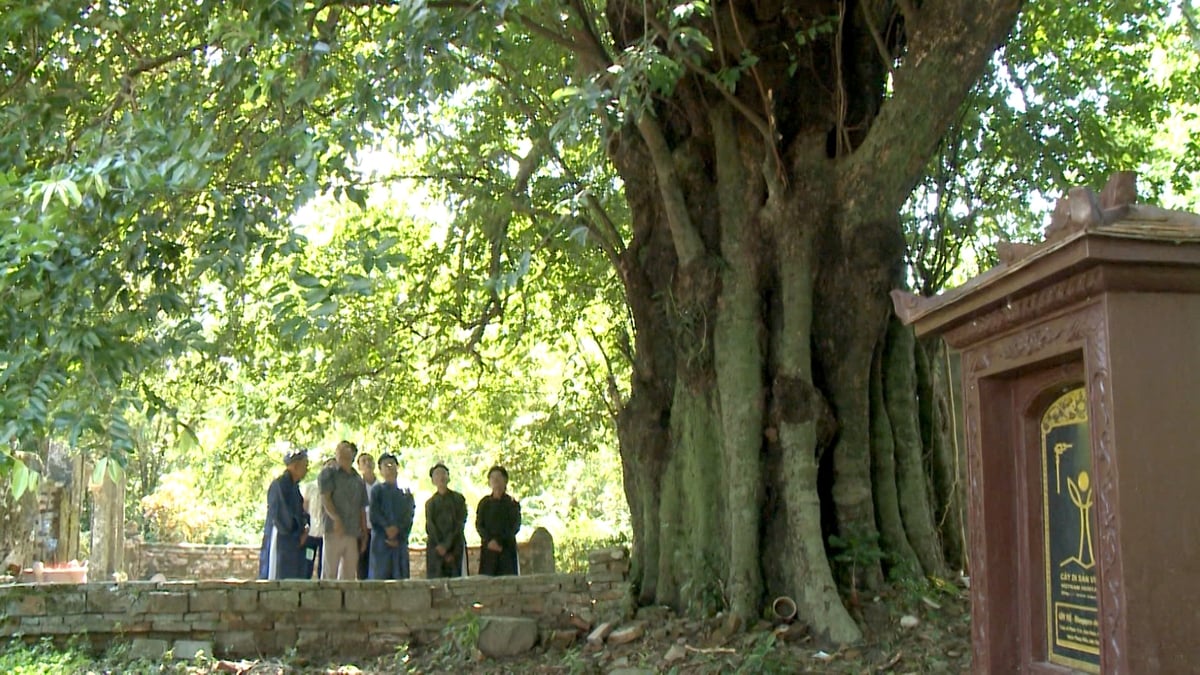

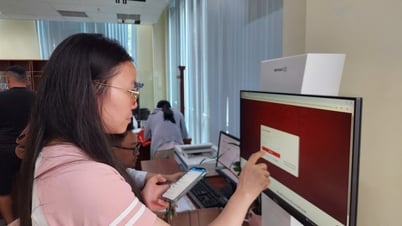



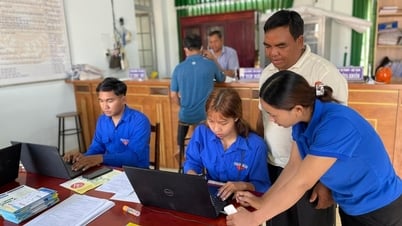

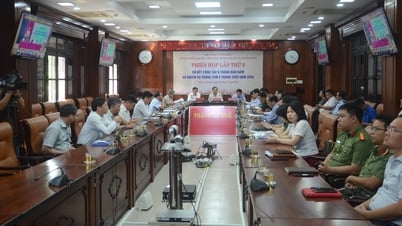


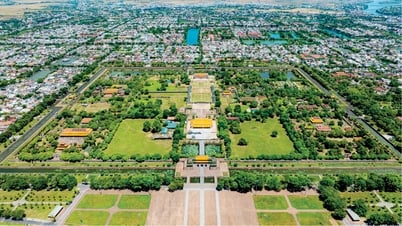
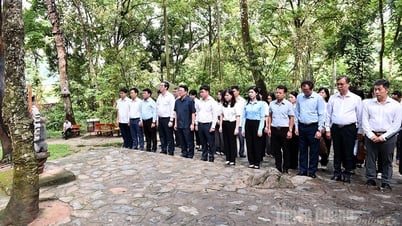

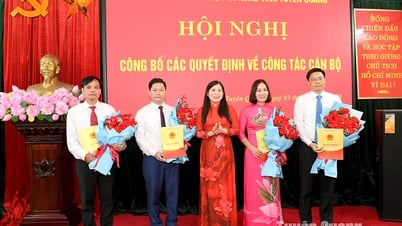
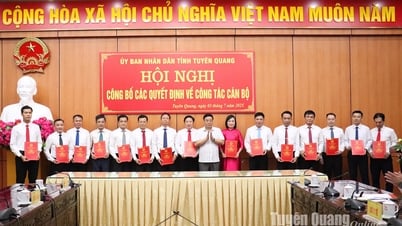
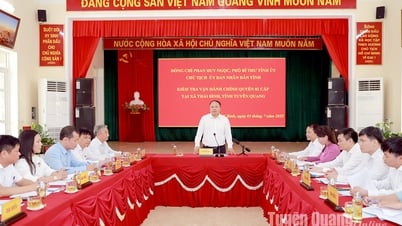
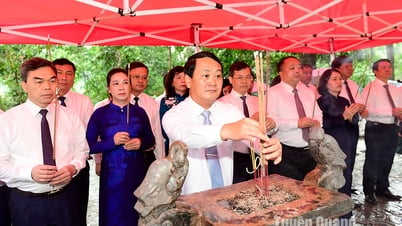
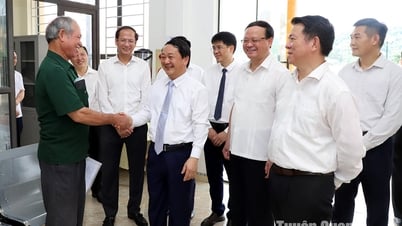





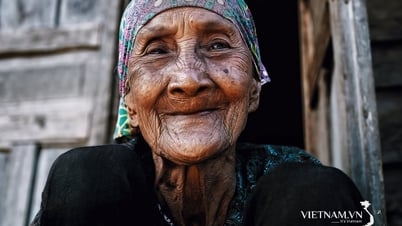
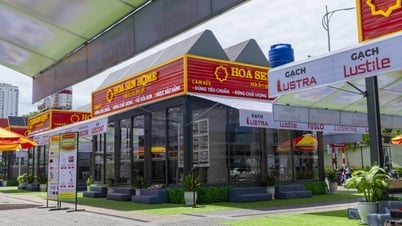
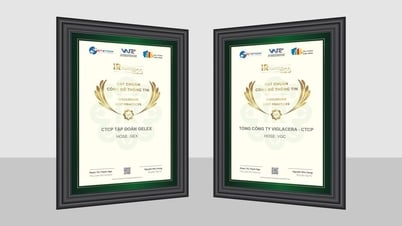

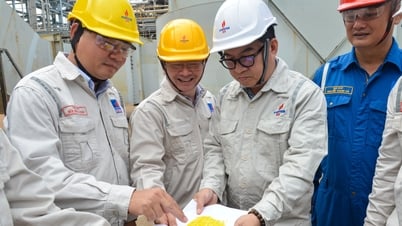
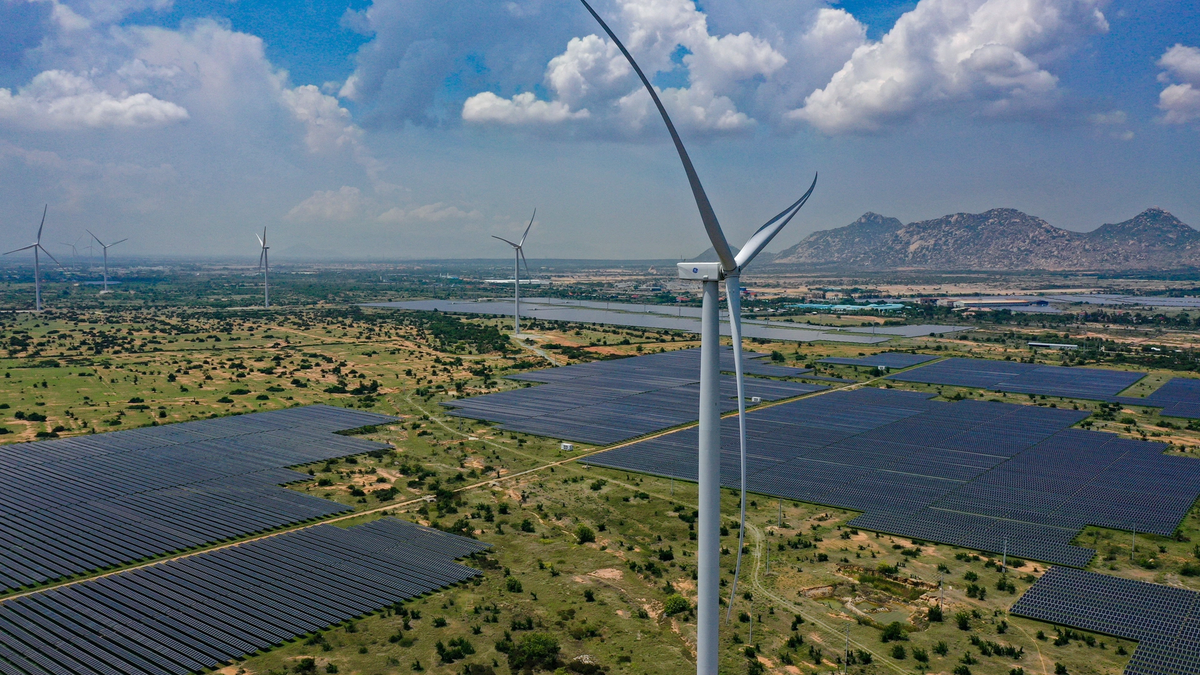
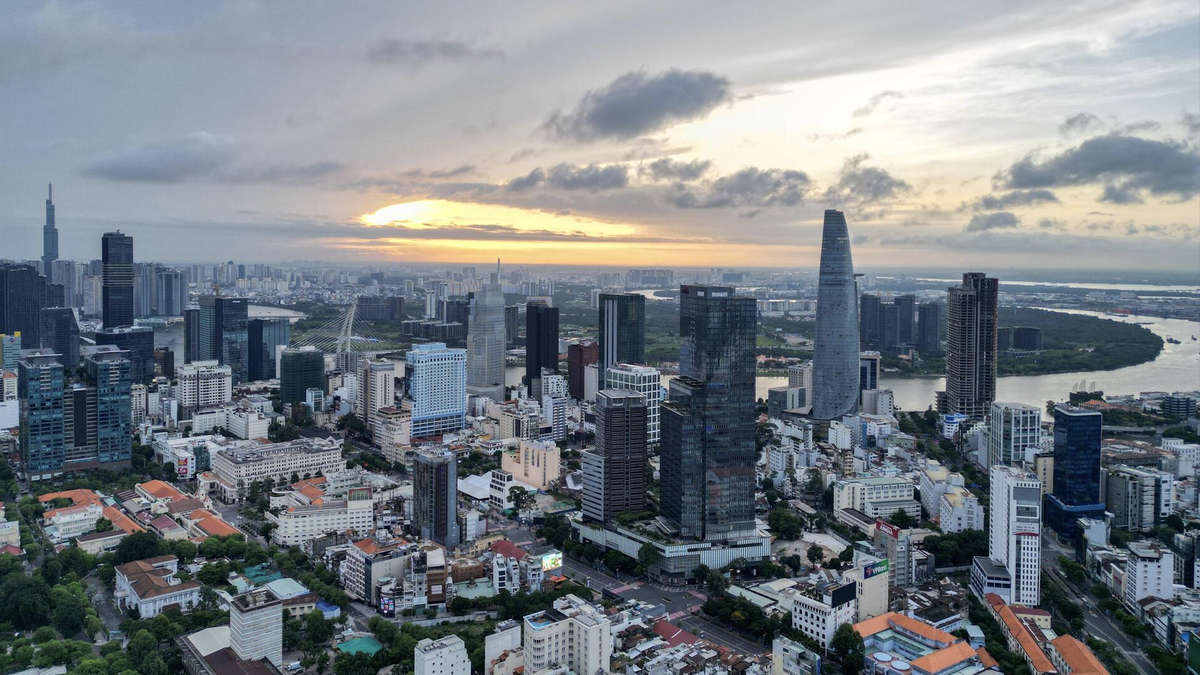
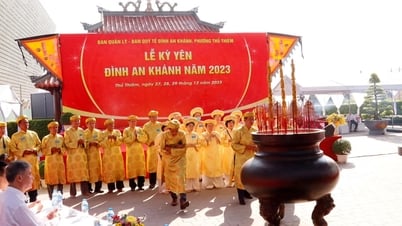
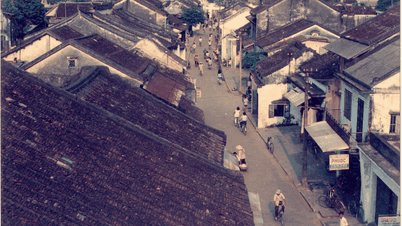



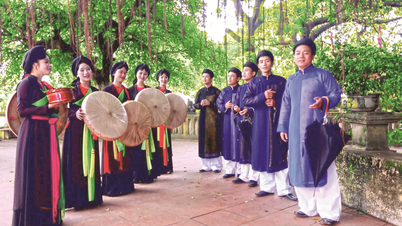








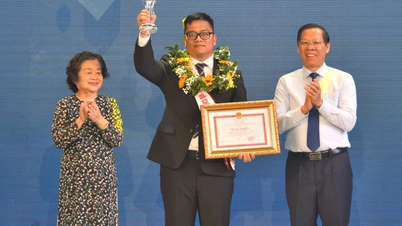




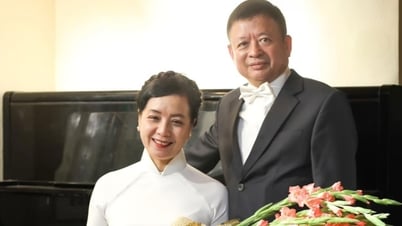

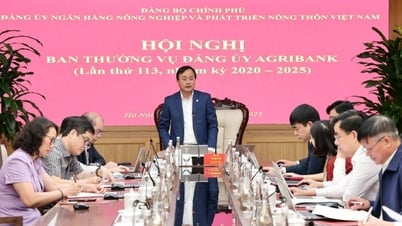


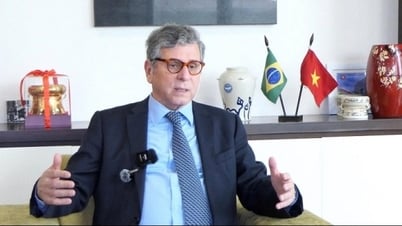

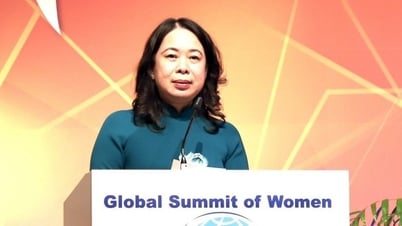
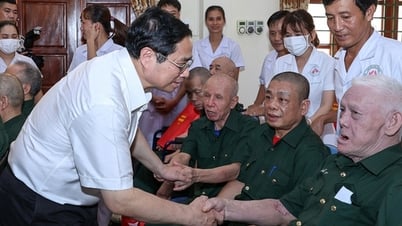
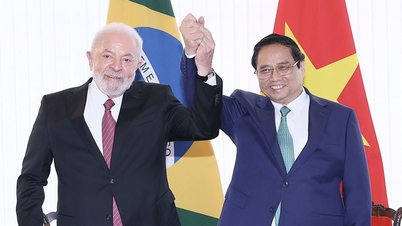

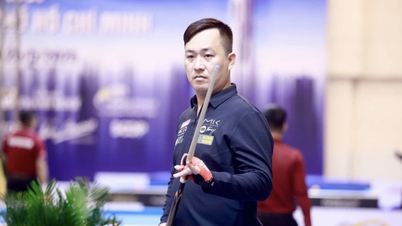

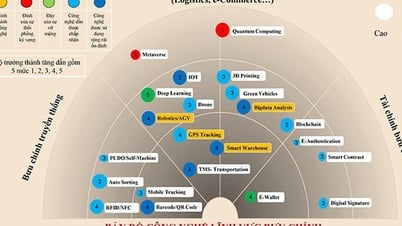



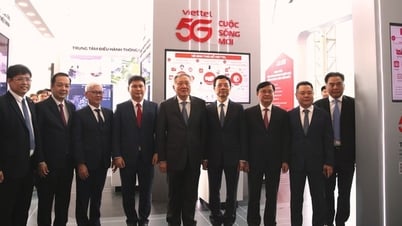

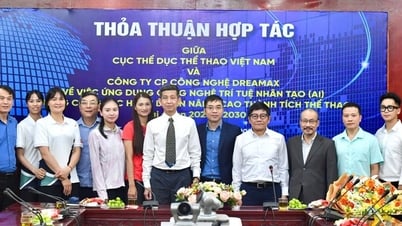
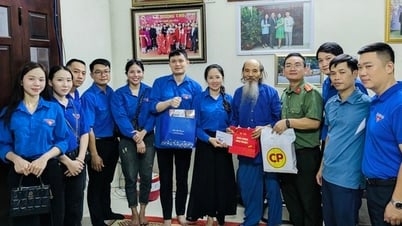
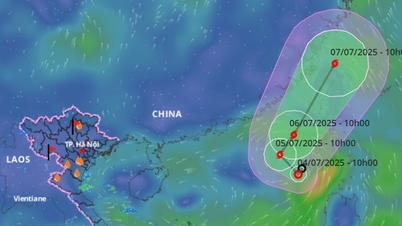

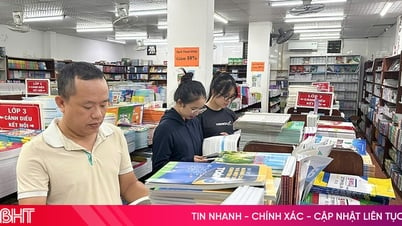

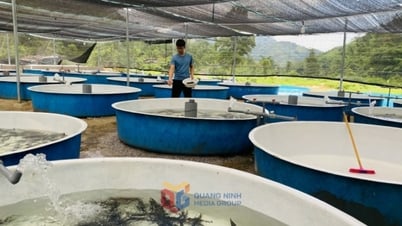



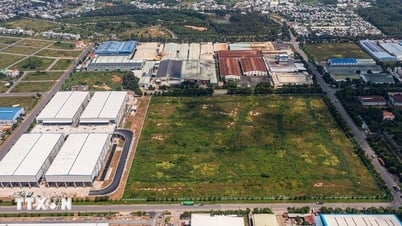

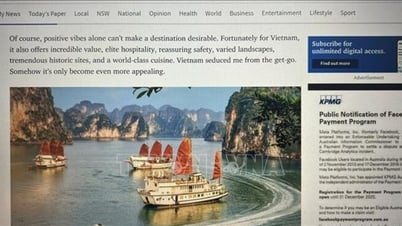



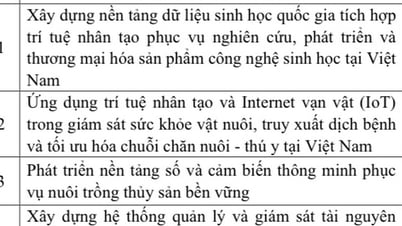
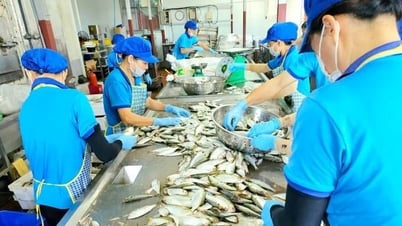


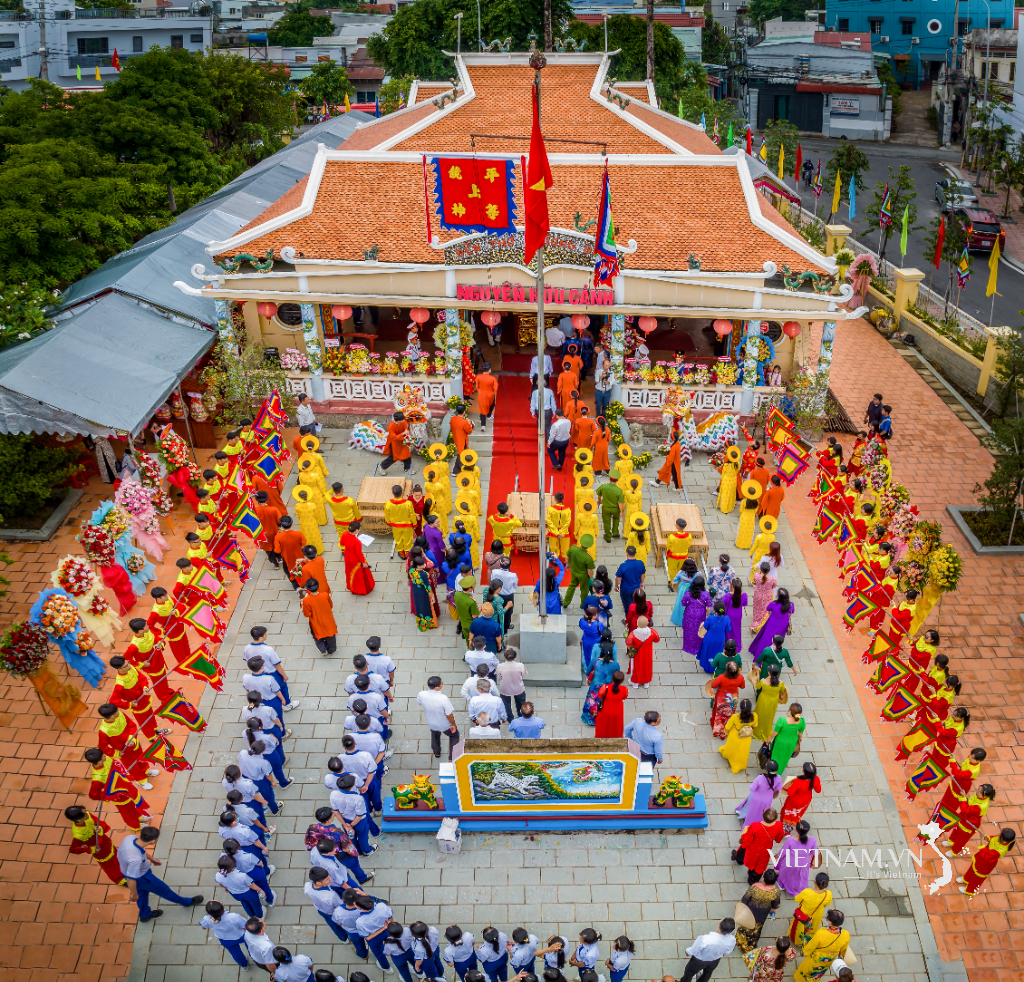
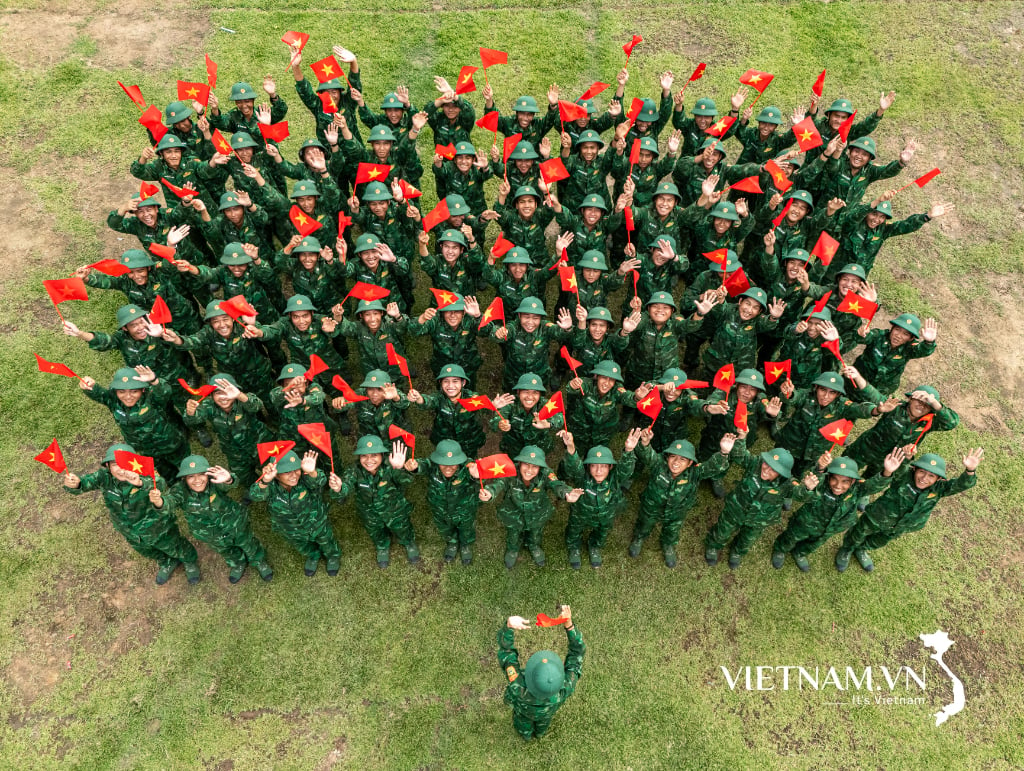
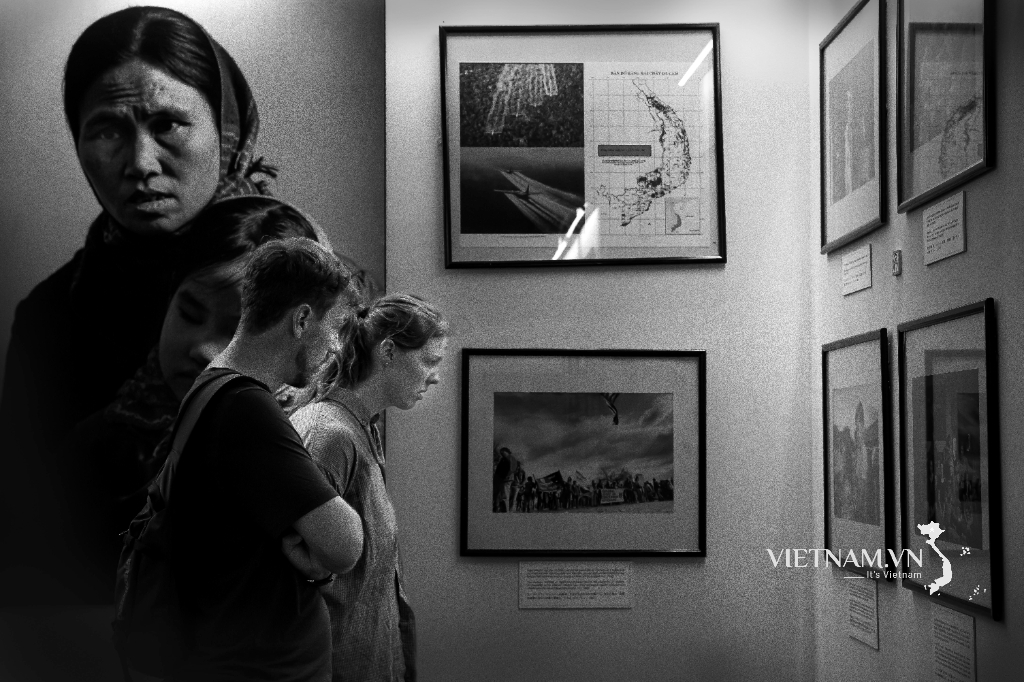

Comment (0)